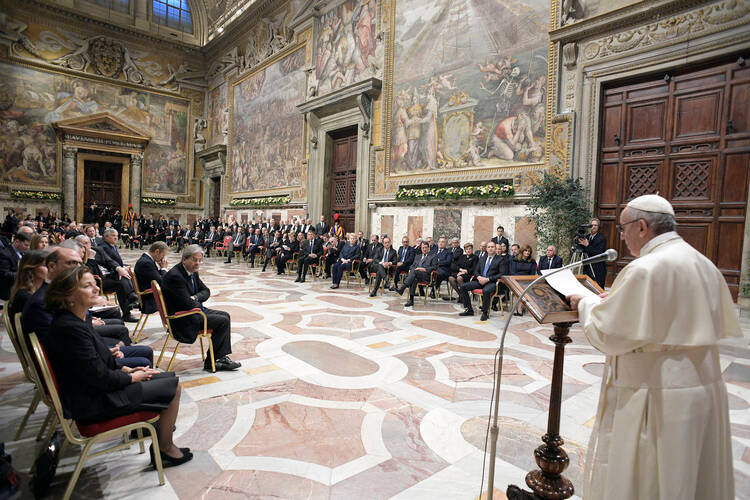
Gerard O'Connell March 24, 2017
“What hope is there for the Europe of today and tomorrow?” Pope
Francis asked when he addressed the leaders of 27 European Union
countries this evening in the Sala Regia (Royal Hall) of the Vatican’s
Apostolic Palace, on the eve of the 60th anniversary of the signing of
the Treaty of Rome, March 25, 1957, that created the European Economic
Community, the forerunner of today’s European Union.
He said the answer to that question is to be found in “the pillars”
with which the union’s founding fathers—the leaders of Belgium, France,
Germany, Holland, Italy and Luxembourg—had laid 60 years ago, namely:
“the centrality of man, concrete solidarity, openness to the world, the
pursuit of peace and development, openness to the future.”
Francis believes in the E.U., and sees its importance not only for
the peoples of this continent but also for peace and development in the
world, but he is convinced it must be reformed. He made this clear
today, and advocated that on the path to reform E.U.’s leaders should
revisit the origins of the union in 1957 when its founding fathers
signed the Treaty “after the dark years and bloodshed of the Second
World War” because they “had faith in the possibility of a better
future.”
He recalled that from the outset, the founding fathers understood
that the Treaty would remain a dead letter unless they had “spirit and
life” and so they agreed that “the first element of European vitality
must be solidarity.” Francis emphasized that this spirit of solidarity
“remains as necessary as ever today, in the face of centrifugal impulses
and the temptation to reduce the founding ideals of the Union to
productive, economic and financial needs.”
No comments:
Post a Comment